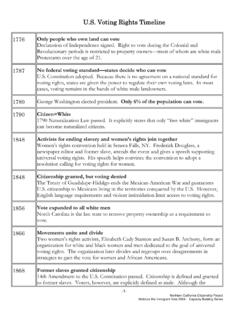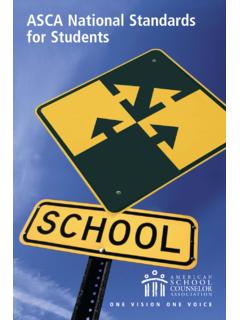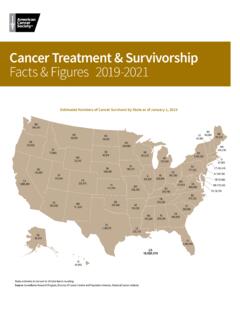Transcription of KNOW YOUR RIGHTS
1 KNOW YOUR RIGHTS when encountering law enforcement in ColoradoACLU of ColoradoKNOW YOUR RIGHTSKNOW YOUR RIGHTSThe information in this ACLU of Colorado Know Your RIGHTS handbook is meant to provide you with basic information about your RIGHTS under the United States and Colorado constitutions, and the laws of the State of Colorado. This information can educate you and empower you, but it is informational only and is not legal advice. You should be aware that the law is constantly changing, and may have changed since the time this handbook was last up-dated. If you need legal advice, you should always consult with an attorney.
2 2008 ACLU of ColoradoContentsA. Searches and Law Enforcement and Freedom of Speech and Special Concerns for Non-citizens Encountering Law G. Mistreatment by Law Legal 2 The United States Constitution protects many of your most fundamental RIGHTS . In addition, the Colorado Constitution protects fundamental RIGHTS for all persons in Colorado. The Colorado Constitution protects the same RIGHTS as the United States Constitution, and in some cases, provides you with greater protection of your RIGHTS or protects additional RIGHTS . Some of your RIGHTS are also protected by federal or state laws, also known as statutes.
3 We the People of the United States, in Order to form a more perfect Union, establish Justice, insure do-mestic Tranquility, provide for the common defence, promote the general Welfare, and secure the Blessings of Liberty to ourselves and our Pos-terity, do ordain and establish this Constitution for the United States of America. 1. Where do my RIGHTS come from?The Preamble to the United States ConstitutionIn this section1. Where do my RIGHTS come from?2. what kind of law enforcement officers might I encounter?3. what information do I have a right to ask law enforcement officers to provide?
4 A. INTRODUCTIONH 3 In Colorado, there are four general categories of law enforcement officers: federal law enforcement officers, the Colorado State Patrol, the county sheriff s departments and the city police departments. For example, in Lake-wood, you may encounter the Colorado State Patrol, the Jefferson County Sheriff s Department or the Lakewood Police Department. Examples of federal law enforcement officers include: Joint Terrorism Task Force members, or federal agents from the FBI, Department of Homeland Security (which includes Immigration and Customs En-forcement and the Border Patrol), and the Drug Enforce-ment Administration.
5 In any police encounter, you have a right to ask for the officer s badge number, name, or other identifying information. Many Colorado law enforcement agencies, such as the Denver Police Department, have policies that require officers to give their business card or name and badge number upon request (unless doing so at that time might harm the safety or welfare of the police or others). In addition, if you are pulled over while driving, and not issued a citation or arrested, Colorado law requires police officers to give you their business Even when offi-cers are not required by department policy to provide you with their identifying information, they cannot retaliate against you for simply asking for that information.
6 If an officer refuses to identify himself or herself when asked or retaliates against you for asking for identification, you may want to register a complaint with that law enforce-ment jurisdiction. See question G1 for information on registering a complaint. 2. what kind of law enforcement officers might I encounter?3. what information do I have a right to ask law enforcement officers to provide? SUPREME COURT JUSTICE WILLIAM J. BRENNAN The Framers of the Bill of RIGHTS did not purport to create RIGHTS . Rather, they designed the Bill of RIGHTS to prohibit our Government from infringing RIGHTS and liberties presumed to be 4 1.
7 what if law enforce-ment officers stop me on the street?An officer may approach you on the street and ask you questions for any reason. If you are not being detained or are not under arrest, you have the right to not talk to the officer. If you want to exercise that right, simply ask, Am I free to go? If the answer is yes, you have the right to say, I do not want to talk to you and walk away. 2. what if officers stop me in my car?An officer may pull you over while driving only if he or she has reasonable suspicion that you have committed a crime or a traffic violation. In Colorado, state courts have made clear that an officer may not pull you over simply to see your driver s Once you have been pulled over, keep your hands where the police can see them.
8 Upon the officer s request you should show the officer your driver s license, registration and proof of Other than providing the above information, you do not have to answer any questions. You have the right to say, I am going to remain silent. Officers can ask you to step outside the car, and they may separate passengers and the B. STOPS In this Section1. what if law enforcement officers stop me on the street?2. what if officers stop me in my car?3. what if the officer says that I am not free to go? 4. Do I have to answer the questions asked by officers if I am being detained?5. Are there any exceptions to the general rule that I do not have to answer questions from officers?
9 6. what if officers threaten me with a grand jury subpoena if I don t answer their questions? SUPREME COURT JUSTICE FELIX FRANKFURTER It is easy to make light of insis-tence on scrupulous regard for the safeguards of civil liberties when invoked on behalf of the unworthy. History bears testimony that by such disregard are the RIGHTS of liberty extinguished, heedlessly at first, then stealthily, and brazenly in the end. H 5 driver from each other to question and then compare their answers. As always, every person has the right to refuse to answer any questions. If you are asked to exit your car, close the door and lock it.
10 An officer may argue that by leaving an open door, you consented to the officer search-ing your : Whether you are under arrest or not, if the police see anything indicating illegal activity in the car in plain view, they may seize it. If the officer says that you are not free to go, then you are being detained. In Colorado, a police officer may detain you for a reasonable period of time if he or she has a reasonable suspicion that you are involved in criminal Being detained is not a full arrest, though an arrest could follow. NOTE: In any police encounter, always assert your RIGHTS clearly and try to have at least one witness present.







